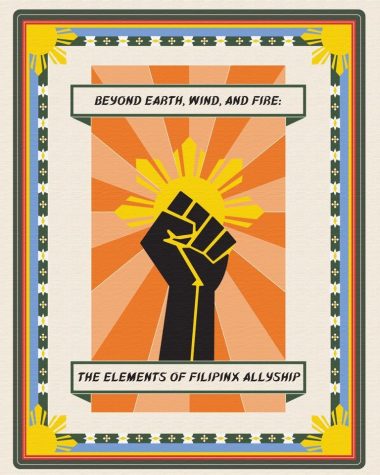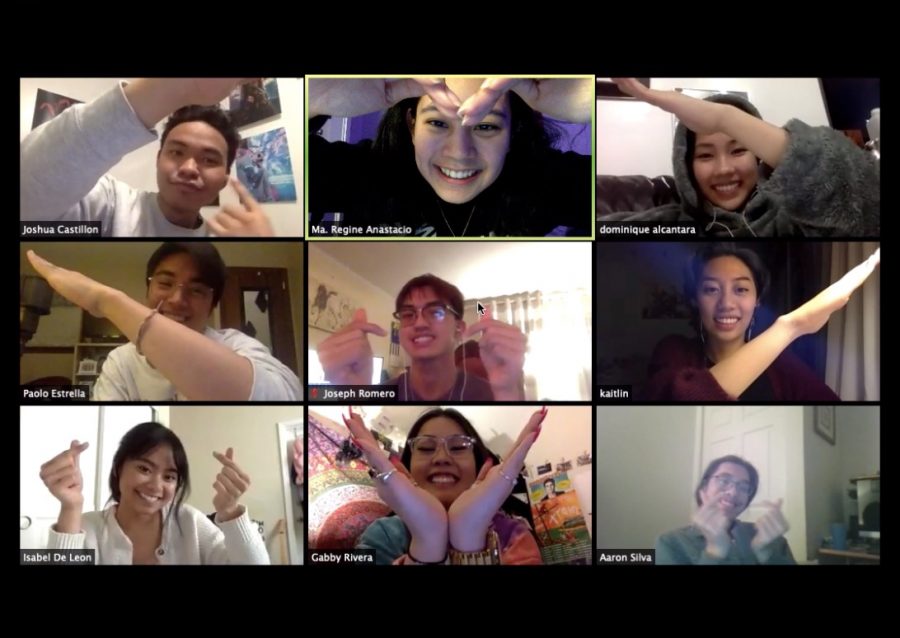FLOWing With Compassion: Fighting Back Against ‘Anti-Blackness’
ZOOM
The FLOW E-Board recognizes the racial issues against Black people within their own community and are inspired to do their part in fixing them.
June 16, 2020
In a year where human relations have already been put to the test by the ongoing COVID-19 pandemic, recent incidents of police brutality further emphasize how 2020 will most likely go down as one of the worst years in modern history. However, to say that there has been public resistance towards the perpetrators responsible for the murders of victims such as George Floyd and Breonna Taylor would be an understatement. People from all walks of life have managed to gather together to take a stand against racial inequality, even during a time of social distancing. Many of Fordham’s clubs have also chosen to take action and inform others as to how they can make a difference, and Fordham’s Filipinos of LC Offering Welcome (FLOW) serve as no exception.
Despite being a Filipino cultural club, FLOW is more than willing to send their message to more than one demographic, as the club’s Public Relations Officer Isabel de Leon, Fordham College at Lincoln Center (FCLC) ’22, firmly believes in confronting this issue from a collective standpoint. “One of the contributions we’ve been continually working on is finding different ways to fundraise for bail funds and other similar causes,” de Leon said. “We’ve created (Instagram) story bingo boards to encourage our members and followers to donate, as well as doing live interviews with past and present e-board members to collect donations.”
De Leon mentioned that FLOW has been actively reposting other Instagram posts that demonstrate how users can contribute to the #BlackLivesMatter movement, whether through posts that display contact information for various organizations or even posts that redirect users to online petitions for them to sign. Through these methods alone, FLOW has managed to raise over $1,000 across different causes.
Yet, without ignoring what FLOW has accomplished on their own, arguably their biggest contribution to the movement is the development of a resource document that revolves around Filipinx American communities (or gender-inclusive Filipino American communities) and what it means to be “anti-Black.” “After seeing a lot of Google Docs with extensive lists of allyship resources and ways to help the BLM movement, I pitched the idea of a Filipinx-specific document to our president, Regine Anastacio, (FCLC ’21,) a couple of weeks ago and we began drafting it right away,” de Leon said.
The document, titled “Beyond Earth, Wind, and Fire: the Elements of Filipinx Allyship,” informs users of the history of Filipinx-Black solidarity, while also including advice on how to avoid instances of anti-Blackness within their own day-to-day lives. The document also provides users with lists of BLM-focused media that they can engage with, including articles to read, films or television shows to watch, and podcasts to listen to.

“I felt it was extremely important to educate our members and our respective Filipinx American communities because there is a huge issue of deeply-rooted anti-Blackness among Filipinx Americans and Asian Americans in general,” de Leon said. “Therefore, we felt it was necessary to use our platform and our education to help others who want to educate their communities.”
De Leon highly encourages Fordham students to read the document for themselves, which is continually being updated with additional resources. Especially when acknowledging just how many protests have already occurred throughout the world and will continue to occur as weeks go by, there isn’t a more appropriate time than now to learn more about Filipinx allyship.
“I grew up in a predominantly Filipinx town in Northern California and went to a majority Filipinx high school, and this issue of anti-Blackness ran rampant within my classmates and even my own family,” de Leon said. “I felt it was my responsibility to address the issue and educate those around me about it, and I’m sure my fellow e-board/FLOW members had a very similar experience.”
Of course, this is not to say that FLOW’s contributions will single-handedly level the “racial playing field.” But like any widespread issue within our contemporary culture, progress will always take time to fully develop. De Leon and her team are certainly making the effort; now it’s just time for others to follow in their direction.












